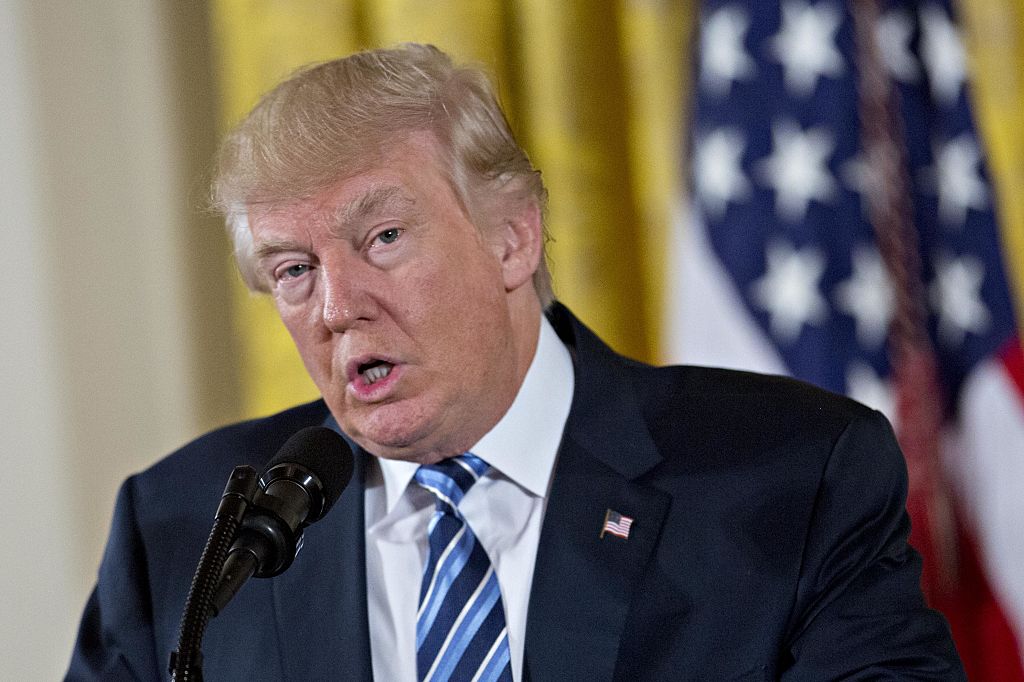Donald Trump and his representatives frequently make public statements that simply are not true. Are they lying? For now, at least, NPR says no, not necessarily—when Trump makes false statements to the public, the network’s news team will not refer to them as “lies.”
By definition, a lie is “a false statement made with intent to deceive,” Morning Edition host Mary Louise Kelly told listeners today. “Intent being the key word there. Without the ability to peer into Donald Trump’s head, I can’t tell you what his intent was. I can tell you what he said and how that squares, or doesn’t, with facts.”
Michael Oreskes, NPR’s senior vice president for news, concurred with Kelly’s distinction: “Our job as journalists is to report, to find facts, and establish their authenticity and share them with everybody. It’s really important that people understand that these aren’t our opinions. … These are things we’ve established through our journalism, through our reporting … and I think the minute you start branding things with a word like ‘lie,’ you push people away from you.”
As NPR points out, the debate over use of the word “lie” is ongoing in many newsrooms. Some media outlets have opted to hedge headlines with terms such as “without evidence.” Others have embraced a flat-out “lie,” like the New York Times, which countered Trump’s false assertion that millions of ballots in the past election were cast illegally with a blunt, “Trump Won’t Back Down From His Voting Fraud Lie. Here Are the Facts.”
Update: NPR provided the following clarifying statement to SPIN regarding use of the word “lie”:
The conversation aims to explain to listeners why NPR has not previously used the word ‘lie’ to describe false statements, not that NPR reporters are barred from, in the future, using that term. … Morning Edition host Steve Inskeep and [senior vice president] of news Mike Oreskes say there are no “banned” words at NPR, and that “if a falsehood is repeated so often that it becomes clear of the intent,” [then] using the word ‘lie’ in a report would be appropriate.





